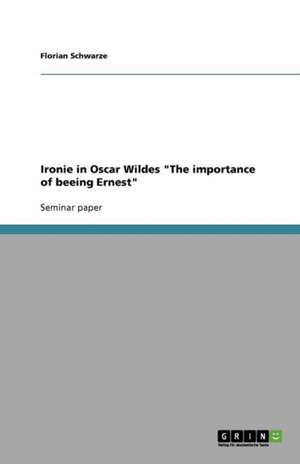Ironie in Oscar Wildes "The importance of beeing Ernest"
Autor Florian Schwarzeen Limba Engleză Pamflet – 15 noi 2010
Preț: 87.13 lei
Nou
Puncte Express: 131
Preț estimativ în valută:
16.67€ • 17.45$ • 13.80£
16.67€ • 17.45$ • 13.80£
Carte indisponibilă temporar
Doresc să fiu notificat când acest titlu va fi disponibil:
Se trimite...
Preluare comenzi: 021 569.72.76
Specificații
ISBN-13: 9783640753239
ISBN-10: 3640753232
Pagini: 16
Dimensiuni: 148 x 210 x 1 mm
Greutate: 0.04 kg
Ediția:1. Auflage
Editura: GRIN Publishing
ISBN-10: 3640753232
Pagini: 16
Dimensiuni: 148 x 210 x 1 mm
Greutate: 0.04 kg
Ediția:1. Auflage
Editura: GRIN Publishing
